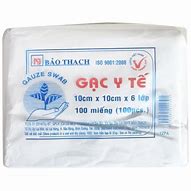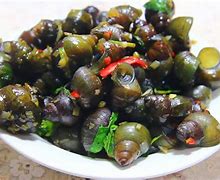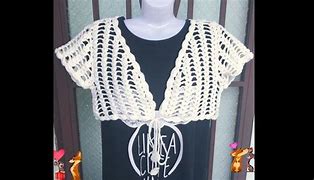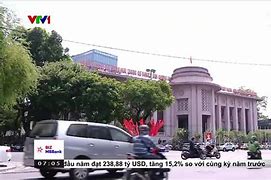
Đề Cương Ôn Tập Học Kì 1 Tiếng Anh 10
1. Where will Hoa be this weekend?
1. Where will Hoa be this weekend?
Unit 9. What did you see at the zoo?
Find ONE mistake in each sentence below.
1. (A) Do you (B) stay at home (C) or go (D) to the zoo yesterday morning?
2. Last (A) weekend, (B) my uncle (C) took me (D) at the zoo.
3. What are (A) his favourite (B) animal at the zoo? – They (C) are elephants (D) and kangaroos.
4. (A) Did Hoa (B) saw a baby monkey and (C) some other (D) animals?
5. There (A) is a lot (B) of animals (C) like elephants, tigers, horses and (D) monkeys at the zoo.
6. The lions (A) roared (B) loudly and the (C) peacocks moved (D) beautiful.
II. Cấu trúc ngữ pháp thi học kì 1 tiếng Anh 10
S + do/does + not + V (bare- inf) + (O).
Do/ Does + S + V (bare-inf) + (O)?
She does the housework every day.
She doesn’t do the housework every day.
Does she do the housework every day?
- Diễn tả thói quen hoặc hành động xảy ra thường xuyên ở hiện tại (habits or regular actions)
E.g: We visit our grandparents every Sunday. (Chúng tôi thường đến thăm ông bà vào mỗi ngày chủ nhật.)
- Diễn tả các tình huống/ sự việc mang tính chất lâu dài, bền vững (permanent situations)
- Diễn tả chân lý/ sự thật hiển nhiên (general truths and facts)
E.g: Broken bones in adults don’t heal as fast as they do in children. (Xương bị gãy ở người lớn lâu lành hơn ở trẻ em.)
- Diễn tả lịch trình, thời gian biểu mang ý nghĩa tương lai (timetables: future sense)
E.g: The train arrives at 7 o’clock. (Tàu hỏa đến lúc 7 giờ đúng.)
- Diễn tả tình trạng, cảm xúc, suy nghĩ tại thời điểm hiện tại. Cách dùng này thường được dùng với các động từ chỉ tình trạng (stative verbs) như:
E.g: I know the answer to this question. (Tôi biết câu trả lời cho câu hỏi này.)
- Đưa ra các lời chỉ dẫn/ hướng dẫn (directions/ instructions)
E.g: You turn left at the end of the road and then go straight. (Bạn rẽ trái ở cuối đường và sau đó đi thẳng.)
Note: Chúng ta có thể sử dụng do/ does trong thì hiện tại đơn để nhấn mạnh các hành động trong câu.
E.g: I do like playing football. (Tôi rất thích chơi bóng đá.)
He does know quite a lot about technology. (Anh ta biết khá nhiều về công nghệ.)
3. Trạng từ tần suất và các cụm trạng từ (Adverbs of frequency and adverbial phrases)
Trong thì hiện tại đơn thường có các trạng từ đi kèm như always, normal, usually, often, sometimes, rarely, never, once/ twice a week, most of the time, every day, nowadays, these days, every now and then, etc.
4. Quy tắc thêm “s/ es” vào sau động từ
a. Động từ tận cùng bằng o, s, x, z, sh, ch: ta thêm “es”.
E.g: miss – misses watch – watches go - goes
+ Nếu trước “y” là một nguyên âm (u, e, o, a, i) thì ta giữ nguyên “y” + “s”
E.g: play-plays buy-buys stay-stays
+ Nếu trước “y” là một phụ âm thì ta đổi “ỵ” thành “i” + “es”
E.g: fly-flies cry-cries study-studies
Các trường hợp không thuộc 2 nhóm trên thì ta thêm “s” vào sau động từ.
E.g: work – works like – likes remember- remembers
d. Trường hợp đặc biệt: have - has
5. Quy tắc phát âm đuôi “s/ es”
Có 3 cách phát âm của động từ có đuôi “s/es”:
- TH1: Nếu động từ có tận cùng là các âm: /s/, /z/, /ʃ/, /tʃ/, /ʒ/, /dʒ/ thì ta phát âm là /ɪz/
Thường có tận cùng là các chữ cái sh, ce, s, z, ge, ch, x …
E.g: watches /wɒtʃɪz/ washes /wɒʃɪz/
- TH2: Nếu động từ có tận cùng bằng các phụ âm vô thanh: /ð/, /p/, /k/, /f/, /t/ thì phát âm là /s/
E.g: cooks /kʊks/ stops /stɒps/
- TH3: Nếu động từ có tận cùng là nguyên âm và các phụ âm hữu thanh còn lại thì ta phát âm là /z/
E.g: loves /lʌvz/ plays /pleɪz/
III. Bài tập ôn thi học kì 1 tiếng Anh 10
I. Put the verbs into the correct form (present simple tense).
1. Mr. Nam often (teach) ………………….. the dogs new tricks.
2. We always (throw) ………………….. our litter in the bin.
3. The referee usually (stop) ………………….. the game after 90 minutes.
4. The children (hurry) ………………….. to open their gifts.
5. He (speak) ………………….. English well.
II. Make questions for the underlined part of the sentence.
1. Daisy goes to school from Monday to Saturday.
2. My father has a cage in the garden.
3. The children like dogs because they are nice.
5. Mike’s new mountain bike costs £100.
III. Complete the sentence with the correct form of the verbs in the box.
wake(s) up - open(s) - speak(s) - take(s) - do(es) - cause(s) - live(s) - play(s) - close(s) -
1. Nick ………………………………. baseball very well.
2. I never ………………………………. coffee.
3. The swimming pool ………………………………. at 8.00 in the morning.
4. It ………………………………. at 9.00 in the evening.
5. Bad driving ………………………………. many accidents.
6. My parents ………………………………. in a very small house.
7. The Olympic Games ………………………………. place every four years.
8. They are good students. They always ………………………………. their homework.
9. My students ………………………………. a little French.
10. I always ………………………………. early in the morning.
IV. Fill in the blank with only ONE suitable word.
Mr. John gets up very early (1) .................... day. He washes his face and takes a quick shower (2) .................... the mornings. His best friend, Bobby, also wakes up very early. Mr. John (3) .................... the breakfast for both. They both (4) .................... like drinking milk but they love eating meat. Then, Mr. John (5) .................... Bobby out to the park. Mr. John (6) .................... a graphic designer. He (7) .................... an office worker. He (8) .................... from home. He designs beautiful images for an advertising company. He (9) .................... lunch (10) .................... half past twelve. Then he (11) .................... start work immediately. He (12) .................... with Bobby instead. After Bobby’s favorite time, he starts work again and (13) .................... in the evening. They both (14) .................... meat for dinner and rest in the front of the TV. He always (15) .................... his favorite TV show after dinner. He never misses it. They both go to bed late (16) .................... night.
1. He …… trying to pass his driving test but fails every time.
A. keepsB. kept C. is keepingD. had kept
2. He wonders why I never …… abroad by plane.
A. has travelledB. have been travellingC. travelD. will have travelled
3. Kate …… her dog for a walk. Her brother …… it.
A. never takes/ always does B. never doesn’t take/ always doesC. never take/ does always D. never don’t take/ always do
4. (have) …… the car keys? - No.
A. You do have B. Are you having C. Have youD. Do you have
5. I suppose as we live in a very rural area, we are lucky that a train service actually …… here.
A. takes B. works C. functions D. operates
Choose the word that has the underlined part pronounced differently from the others.
1. A. responsible B. homemaker C. mow D. overworked
2. A. bathe B. finance C. program D. cat
3. A. lifting B. routine C. split D. divide
4. A. clothes B. fold C. groceries D. iron
5. A. duty B. clusters C. rubbish D. washing-up
Pick out the word whose stress pattern is different from that of the others. Circle A, B, C or D.
1. A. Private B. Provide C. Arrange D. Advise
2. A. Resurface B. Knowledge C. Technical D. Export
3. A. Medical B. Entertainment C. Atmosphere D. Suburb
4. A. Recipe B. Cinema C. Similar D. Expertise
5. A. Indicate B. Forefinger C. Procedure D. Enemy
1. Match the two columns to make correct phrases.
1. A. satisfaction B. household chore C. breadwinner D. financial
2. A. mop B. lawn C. equity D. resolution
3. A. split B. bathe C. overworked D. tidy
4. A. housekeeper B. housewife C. houseplant D. homemaker
5. A. conflict B. marital C. chore D. finance
III. Choose the best options to fill in the blanks.
1. My mother is ____ for taking care of the home and the family.
A. responsible B. takes the responsibility C. take the duty D. Both B & C are correct.
2. Women usually manage ____ better than men do.
A. household financesB. household machines C. housewives D. houseplants
3. My parents ____. My mother usually does more housework than my father.
A. divide chores equallyB. split chores unequallyC. don't share housework equally D. Both B & C are correct.
4. Equal share of household duties helps increase ____.
A. job satisfaction B. couple satisfaction C. wedding satisfaction D. marital satisfaction
5. It's not easy to gain ____ between husbands and wives, even in developed countries.
A. equal chore B. chore equally C. chore equal D. chore equity
UNIT 2: HUMANS AND THE ENVIRONMENT
I. Choose the word that has the underlined part pronounced differently from the others.
1. A. stomach B. chest C. chord D. psychology
2. A. digestive B. suggest C. massage D. allergy
3. A. skull B. study C. lung D. circulatory
4. A. resistance B. respiratory C. vessel D. system
5. A. sugary B. acupressure C. intestine D. sure
II. Match the two columns to make meaningful sentences.
a. can be effective reduced by doing yoga.
2. Treatment for this type of disease
b. can prevent many common diseases.
d. is not just about embarrassment, it may be a sign of other health problems.
5. Read the following information
e. to learn about what a food allergy is.
f. to include these five foods in your diet to boost your health.
III. Choose the best options to fill in the blanks.
1. In some countries, a ____ is usually done along with a haircut.
A. bone B. blood vessel C. head massage D. allergy
2. Be careful. The ____ of this medicine can be very dangerous.
A. price B. placeC. date D. side effects
3. People are waiting for a ____ system with better doctors and facilities in this country.
A. health care B. educational C. entertainment D. transportation
4. Stress is the number 1 cause of ____, in other words, unhealthy sleep patterns.
A. stomach acheB. flu C. coldD. sleeplessness
5. If you feel sleepy all the time, you are having ____.
A. sleeplessness B. sleepiness C. a toothache D. a headache
6. If I were you, I'd look for another job.
A. I suggest that you looked for another job. B. I suggest looking for another job. C. I suggest you to look for another job.D. I suggest that you look for another job.
7. I only remembered the appointment when it was too late.
A. It was only when it was too late that I remembered the appointment. B. Not until it was too late that I remembered the appointment. C. Only when it was too late that I remembered the appointment.D. It was not until it was too late did I remember the appointment.
8. She finds it difficult to get up early.
A. She used to get up early. B. She didn't use to get up early. C. She isn't used to getting up early. D. She is used to getting up early.
9. I met her when I was staying in Paris last summer.A. I had met her before I went to Paris last summer. B. I met her during my stay in Paris last summer. C. I met her after I went to Paris last summer.D. I met her during I was staying in Paris last summer.
10. Do shops usually stay open so late in this country?
A. Are shops usually opened so late in this country? B. Do you usually open shops so late in this country? C. Is it usual for shops to be opened so late in this country? D. Is it usual for shops to stay open so late in this country?
I. Write and reply to an inquiry letter for health advice
I. Choose the word whose underlined part is pronounced differently from that of the others.
1. A. architect B. parachute C. school D. psychology
2. A. treason B. reason C. season D. jealous
3. A. worked B. laughed C. hoped D. needed
4. A. erupt B. humour C. UFO D. communicate
5. A. author B. other C. there D. they
II. Choose the word whose main stress pattern is not the same as that of the others.
6. A. friendly B. extra C. along D. orphanage
7. A. interesting B. surprising C. amusing D. successful
8. A. understand B. engineer C. benefit D. Vietnamese
9 A. paper B. tonight C. lecture D. story
10 A. important B. community C. organize D. disease
I. Choose the most suitable word or phrase A, B, C or D to complete each sentence.
1. ____ scientists have observed increased pollution in the water supply.
A. LateB. Later C. LatterD. Lately
2. You will have to ____ your holiday if you are too ill to travel.
A. put offB. cut downC. put out D. put up
3. It is recommended that he ____ this course.
A. tookB. takesC. takeD. taking
4. Various societies define ____ in many rather complex ways.
A. that is successful B. what success is C. that success is D. what is success
5. Don't set off fireworks too closely to your house, ____?
A. do youB. don't youC. will youD. have you
6. He was the first person ____ the fire.
A. discover B. to discoverC. discoveringD. discovered
7. John: "I didn't pass my driving test".
A. Better luck next time B. Fine, thanks C. Congratulation D. That was nice of them
8. Our friends have lived in Paris ____ 2002.
9. The government stopped the local companies from importing fake milk powder ____ of public health.
A. in the interest B. to the best C. for the attention D. on the safe side
10. Mr. Vo Van Kiet, ____ was our former Prime Minister, was born in Vinh Long.
Mời các bạn tải File tài liệu để xem thêm đề thi học kì 1 tiếng Anh 10
Từ vựng chủ đề địa chỉ, đường phố
- Hỏi về đặc điểm của đường/phố





















